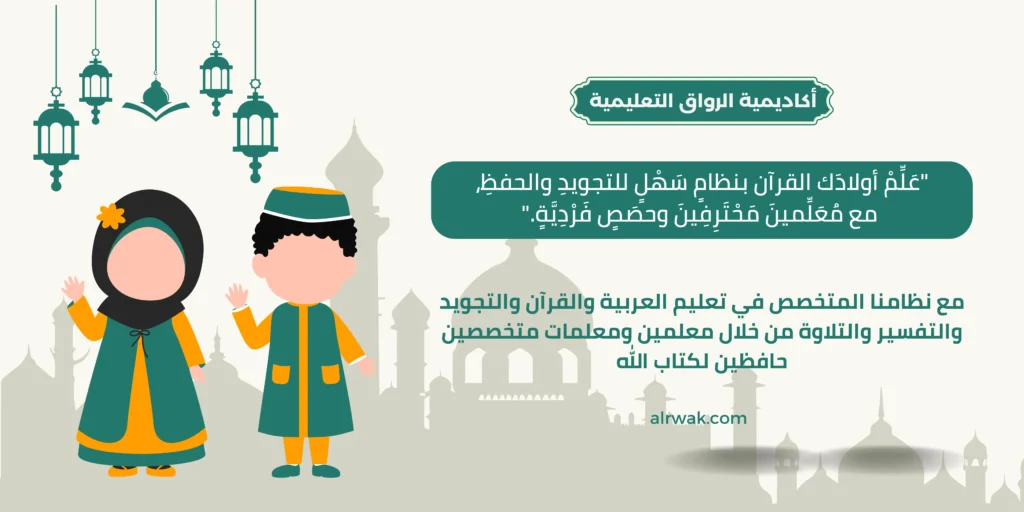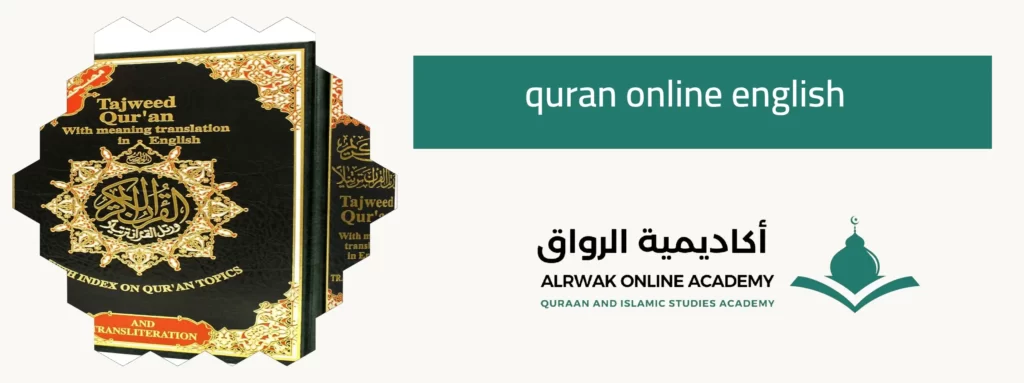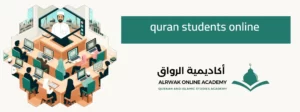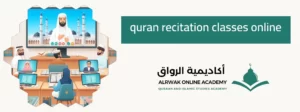In an increasingly interconnected world, the quest for knowledge knows no bounds. For Muslims and non-Muslims alike, delving into the depths of Islamic scripture, particularly the Quran, holds immense significance. However, for many non-Arabic speakers, accessing the profound wisdom and guidance of the Quran has traditionally posed a significant challenge. Enter the digital era, where technology has not only revolutionized communication but also provided unprecedented access to religious texts. In this article, we embark on a journey through the realm of Quranic study online, focusing specifically on the availability and utility of English translations. We explore how these digital platforms bridge linguistic barriers, allowing seekers of knowledge from diverse backgrounds to engage with the sacred teachings of Islam in a language they understand. Join us as we navigate the virtual corridors of Quranic interpretation, discovering the wealth of resources that await those eager to explore the profound wisdom of the quran online english.
quran online english
In today’s digital age, the Quran has become more accessible than ever before, thanks to the proliferation of online platforms offering English translations. This technological advancement has revolutionized the way people from diverse linguistic backgrounds engage with the sacred text of Islam. Gone are the days when accessing the profound wisdom and guidance of the Quran was restricted to those well-versed in Arabic. Now, individuals worldwide can explore its teachings with just a few clicks, regardless of their native language. This democratization of access to religious scripture has opened up new avenues for learning, reflection, and dialogue within both Muslim and non-Muslim communities. Whether it’s through dedicated websites, mobile applications, or social media platforms, the Quran’s message is now readily available to anyone seeking spiritual enlightenment or a deeper understanding of Islamic principles.
One of the most significant advantages of accessing the Quran online in English is the ability to transcend linguistic barriers. For non-Arabic speakers, the Quranic text can seem daunting and inaccessible in its original language. However, English translations provide a bridge that allows individuals to grasp the essence of its teachings without the need for fluency in Arabic. These translations strive to capture the nuances and subtleties of the Quranic verses while making them comprehensible to a global audience. As a result, Muslims and non-Muslims alike can engage in meaningful study and reflection, fostering greater interfaith understanding and dialogue.
Moreover, the online availability of English translations has empowered individuals to study the Quran at their own pace and convenience. With just a smartphone, tablet, or computer, anyone can access a wealth of resources, including translations, commentaries, and audio recitations, from anywhere in the world. This flexibility enables learners to tailor their Quranic study to fit their busy schedules and personal preferences. Whether it’s during a commute, a lunch break, or before bedtime, the Quran is always just a few taps away, ready to offer guidance, solace, and inspiration to those who seek it.
In addition to convenience, the online medium facilitates collaboration and community-building among Quranic learners. Through forums, discussion groups, and social media platforms, individuals can connect with fellow seekers, share insights, and engage in meaningful dialogue about the Quran’s teachings. This virtual community transcends geographical boundaries, bringing together people from diverse backgrounds and perspectives united by their shared interest in exploring the Quranic message. By fostering a sense of belonging and camaraderie, online platforms enrich the learning experience and provide valuable support to individuals embarking on their Quranic journey.
Furthermore, the Quran’s online accessibility in English has sparked innovation in the field of Islamic education and outreach. From interactive learning modules to multimedia presentations, educators are leveraging technology to make the Quran more engaging and relatable to modern audiences. Mobile applications offer gamified quizzes and challenges, making Quranic study fun and interactive for children and adults alike. Virtual classrooms enable students to participate in live lectures, ask questions, and engage with teachers and scholars from around the world. These innovative approaches not only make the Quran more accessible but also inspire a new generation of learners to connect with their faith in meaningful and transformative ways.
However, despite the numerous benefits of accessing the Quran online in English, there are also challenges and limitations to consider. One concern is the quality and accuracy of translations, as nuances of meaning can be lost or distorted in the process of rendering the Quranic text into English. Additionally, the vast amount of information available online can be overwhelming, making it difficult for learners to discern reliable sources from those that may promote misinterpretations or misconceptions. Moreover, the digital divide remains a barrier for many individuals, particularly those in underserved communities or regions with limited internet access.
In conclusion, the Quran’s availability online in English represents a profound opportunity for individuals worldwide to engage with its timeless message of guidance, wisdom, and enlightenment. By transcending linguistic barriers, offering flexibility and convenience, fostering community and collaboration, and inspiring innovation in Islamic education, online platforms have revolutionized the way people approach Quranic study. However, it is essential to navigate this digital landscape with discernment and critical thinking, ensuring that the Quran’s message is conveyed accurately and authentically to future generations. As technology continues to evolve, so too will the ways in which we engage with the Quran online, enriching our understanding and appreciation of this sacred scripture for years to come.
more: quran memorization teacher
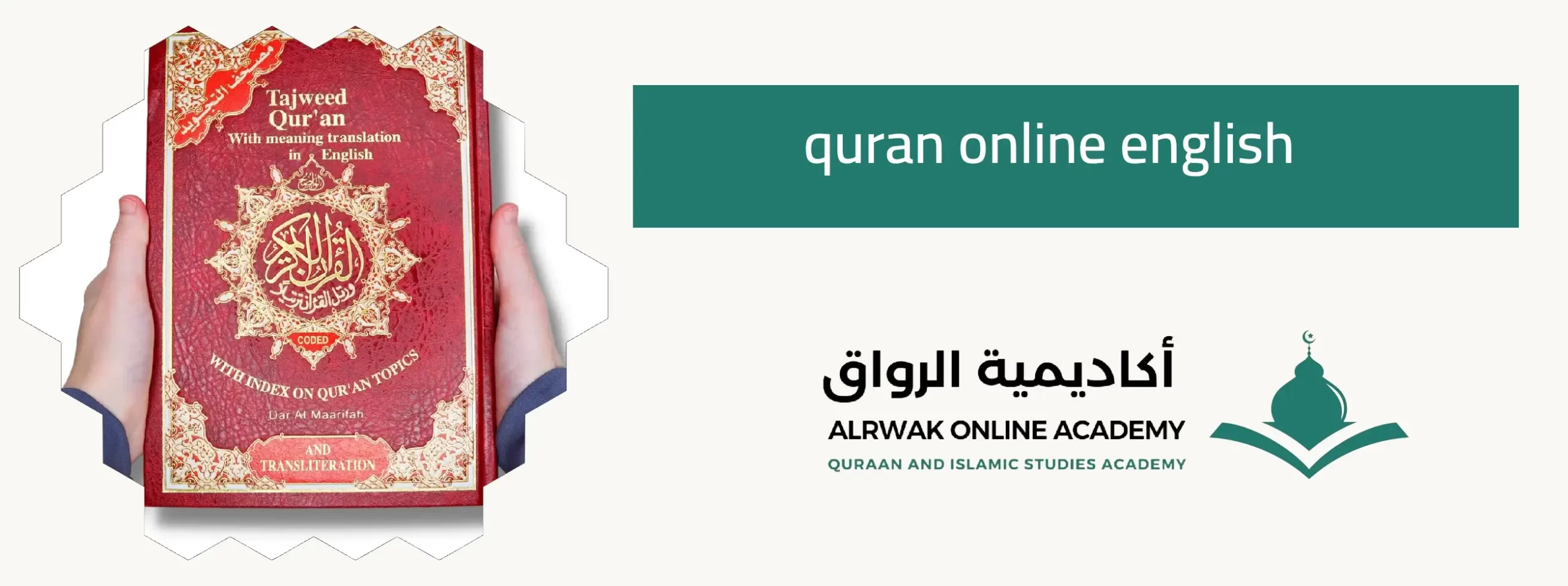
Quran in English and Arabic
The Quran, regarded as the central religious text of Islam, holds a profound significance for Muslims worldwide. It is believed by adherents to be the literal word of God as revealed to the Prophet Muhammad over a period of approximately 23 years. The Quran is written in classical Arabic, a language revered for its eloquence and precision, and it is considered by Muslims to be the ultimate source of guidance for all aspects of life. Its verses cover a wide range of topics, including theology, morality, law, and spirituality, offering believers a comprehensive framework for living in accordance with the will of God. However, for the majority of Muslims who are not native Arabic speakers, accessing the Quran in its original language can present a significant challenge. As a result, translations of the Quran into various languages, including English, have played a crucial role in making its teachings accessible to a global audience.
English translations of the Quran seek to convey the meanings of its verses while staying true to the original Arabic text. Translators grapple with the complexities of language, striving to capture the nuances and subtleties of the Quranic language while making it comprehensible to English-speaking readers. However, translating the Quran is no simple task, as the richness of its language and the depth of its meanings pose unique challenges for translators. Some opt for literal translations, aiming to preserve the exact wording of the Arabic text, while others prioritize readability and clarity, even if it means deviating slightly from the original phrasing. Regardless of the approach, all translations of the Quran serve as valuable tools for Muslims seeking to deepen their understanding of the faith and for non-Muslims interested in learning about Islam.
Despite the availability of English translations, many Muslims still place a strong emphasis on reciting and studying the Quran in its original Arabic form. This is due in part to the belief that the Quran’s linguistic beauty and spiritual power are best experienced in Arabic. Additionally, reciting the Quran in Arabic is considered an act of worship in itself, with believers earning spiritual rewards for each letter recited. As a result, Muslims around the world devote time to memorizing and reciting passages from the Quran in Arabic, often from a young age. This emphasis on the Arabic language reflects the Quran’s central role in shaping Islamic identity and practice, serving as a unifying force for the global Muslim community.
For those who do not have proficiency in Arabic, however, English translations provide a vital resource for engaging with the Quran’s teachings. Translators strive to convey the essence of the Quranic message while adapting it to the linguistic and cultural context of English-speaking audiences. This allows Muslims and non-Muslims alike to explore the Quran’s themes of faith, compassion, justice, and mercy, gaining insights into the principles and values that underpin Islamic belief and practice. English translations also facilitate dialogue and understanding between Muslims and people of other faiths or no faith, fostering greater appreciation and respect for the diverse religious traditions that enrich human civilization.
In conclusion, the Quran occupies a central place in the hearts and minds of Muslims worldwide, serving as a source of guidance, inspiration, and spiritual nourishment. While the original Arabic text holds a special significance for believers, English translations play a crucial role in making the Quran’s teachings accessible to a global audience. Whether read in Arabic or English, the Quran continues to inspire individuals and communities to strive for righteousness, justice, and compassion in their lives, embodying the timeless message of God’s mercy and guidance for all of humanity.
Quran in English PDF
The availability of the Quran in English PDF format has significantly transformed the way people engage with this revered religious text. PDF versions of the Quran offer numerous advantages, making it more accessible, convenient, and portable for readers worldwide. One of the most significant benefits of accessing the Quran in PDF format is the ease of distribution and dissemination. With just a few clicks, individuals can download a digital copy of the Quran onto their computers, smartphones, or tablets, enabling them to carry the sacred text with them wherever they go. This accessibility eliminates the need for physical copies of the Quran, particularly for those living in areas where Islamic literature may be scarce or difficult to obtain. Additionally, PDF versions of the Quran can be easily shared via email, messaging apps, or social media platforms, allowing users to spread the message of Islam to friends, family, and communities around the world.
Moreover, the portability of the Quran in PDF format enables users to engage with its teachings anytime, anywhere, without the constraints of time or location. Whether during a commute, a break at work, or in the comfort of one’s home, individuals can immerse themselves in the sacred words of the Quran at their own pace and convenience. This flexibility accommodates the busy lifestyles of modern readers, empowering them to incorporate Quranic study into their daily routines and deepen their spiritual connection with the text. Additionally, PDF versions of the Quran often include features such as bookmarking, highlighting, and note-taking, allowing users to customize their reading experience and track their progress through the text.
Furthermore, the digital nature of PDF files facilitates interactive engagement with the Quran, enhancing the learning experience for readers of all ages and backgrounds. Many PDF versions of the Quran include hyperlinks, cross-references, and footnotes that provide additional context, explanations, and interpretations of the text. These features enrich readers’ understanding of the Quranic verses and help them navigate complex topics and themes. Additionally, some PDF versions include audio recitations of the Quran, allowing users to listen to the melodious recitations of renowned Quranic scholars and memorize verses with correct pronunciation and intonation. These multimedia elements make Quranic study more engaging and accessible, particularly for visual and auditory learners.
Despite the numerous advantages of accessing the Quran in PDF format, there are also some limitations and considerations to keep in mind. One concern is the quality and accuracy of the PDF files, as not all versions may adhere to standard transliteration and translation guidelines. Additionally, the digital nature of PDF files may pose challenges for individuals with visual impairments or disabilities, as screen readers and accessibility features may not be fully compatible with all PDF readers. Furthermore, the proliferation of PDF versions of the Quran online raises issues of authenticity and authority, as users must exercise caution when selecting sources and verifying the accuracy of translations and interpretations.
In conclusion, the Quran in PDF format offers a convenient, accessible, and interactive way for readers worldwide to engage with the sacred text of Islam. Whether accessed on a computer, smartphone, or tablet, PDF versions of the Quran enable users to explore its teachings, reflect on its messages, and deepen their understanding of Islamic faith and spirituality. While there are challenges and considerations associated with digital Quranic study, the benefits of accessibility, portability, and interactivity outweigh these concerns, making PDF versions an invaluable resource for Muslims and non-Muslims alike seeking guidance, inspiration, and enlightenment from the timeless words of the Quran.

